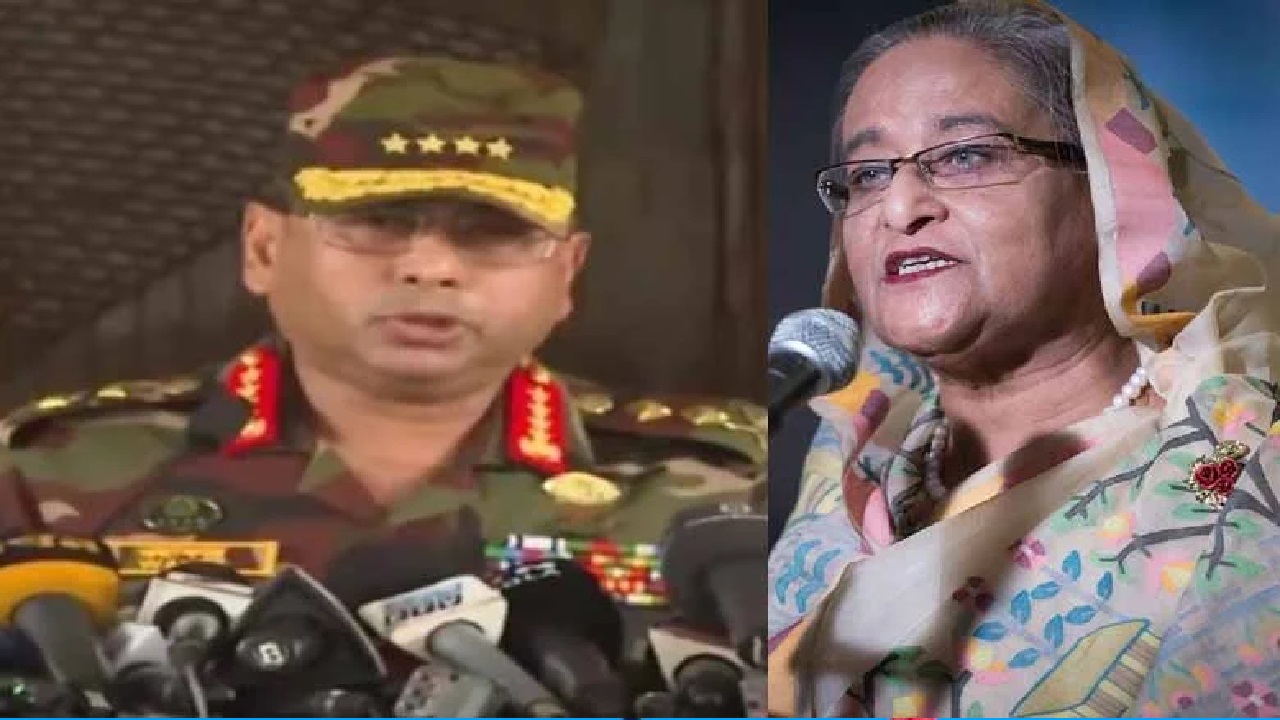Sheikh Hasina Resigns
In a dramatic turn of events, Sheikh Hasina has resigned as Prime Minister of Bangladesh amid intense protests and violence. Bangladesh Army Chief General Waker-uz-Zaman announced the resignation on Monday and declared the formation of an interim government to stabilize the country. This decision follows widespread unrest and the Prime Minister’s reported flight from the capital, Dhaka.
General Waker-uz-Zaman, in a broadcast to the nation, stated, “We will form an interim government. We aim to restore peace and investigate all the killings that have occurred over the past few weeks.” He also appealed to citizens to halt violence, reassuring that there would be no need for a curfew or emergency measures. The army is expected to take charge of maintaining order and addressing the crisis.
Protests and Violence
The resignation comes in the wake of escalating violence and protests. On Monday, jubilant crowds flooded the streets of Dhaka, celebrating Hasina’s departure. Protesters stormed Hasina’s official residence, ‘Ganabhaban,’ vandalizing the property and looting furniture and appliances. They also defaced a statue of Sheikh Mujibur Rahman, Hasina’s father, further symbolizing the intensity of the protests.
Student activists had organized a march to Dhaka, defying a nationwide curfew to demand Hasina’s resignation. The unrest, which began last month over a controversial quota system in government jobs, has evolved into a broader campaign against Hasina. The situation intensified following clashes between police and protesters, resulting in at least six additional deaths on Monday in Jatrabari and Dhaka Medical College areas. These incidents are part of a larger wave of violence that has already claimed nearly 100 lives.
General Waker-uz-Zaman’s Role
General Waker-uz-Zaman, who assumed the role of Chief of Army Staff on June 23, 2024, now plays a critical role in addressing the country’s turmoil. Born on September 16, 1966, in Sherpur District, General Zaman has built a distinguished career in the Bangladesh Army. He was commissioned into the army on December 20, 1985, and has since held numerous significant positions, demonstrating his strategic acumen and dedication to national security.
Before becoming Chief of Army Staff, General Zaman served as Chief of General Staff (CGS) from December 29, 2023, overseeing operational and strategic planning. He was promoted to Lieutenant General in November 2020 and became the 15th Principal Staff Officer of the Armed Forces Division, where he played a key role in coordinating military strategies.
General Zaman’s international contributions are noteworthy, including his participation in United Nations peacekeeping missions such as UNMIL and UNAVEM I. His involvement in these missions reflects the Bangladesh Army’s commitment to global peace and stability. Additionally, he has contributed significantly to military education and training, serving as an instructor at prominent institutions such as the Non-Commissioned Officer’s Academy (NCOA) and the Bangladesh Institute of Peace Support Operation Training (BIPSOT).
His previous roles also include leadership positions in the 46th Independent Infantry Brigade and as General Officer Commanding (GOC) of the 9th Infantry Division. His extensive experience in military administration and operations highlights his capability to navigate the current crisis.
As Bangladesh transitions to an interim government, the nation faces the challenge of restoring order and addressing the underlying issues driving the unrest. The interim government’s success will depend on its ability to manage the immediate crisis and work towards a sustainable resolution to the political and social tensions that have plagued the country.
The international community and local observers will closely monitor the situation as Bangladesh seeks stability under new leadership. The role of General Waker-uz-Zaman and the interim government will be crucial in determining the country’s path forward amid ongoing challenges.
(With inputs from agencies)








